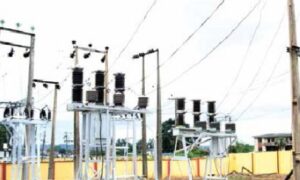Nigeria Faces $26 Billion Annual Loss Due to Electricity Issues – Report
Nigeria Faces $26 Billion Annual Loss Due to Electricity Issues – Report

Nigeria’s persistent electricity problems are leading to an estimated annual economic loss of $26 billion, according to the latest Africa Trade Barometer report from Standard Bank.
The report highlights that businesses in Nigeria spend around $22 billion each year on off-grid fuel to cope with unreliable power supply, which adds to their operational costs. It states, “In Nigeria, companies face a national grid that often fails to meet daily peak demand, which is nearly four times its actual generation capacity. The economic losses from these electricity shortages are estimated at $26 billion annually, excluding the $22 billion spent on fuel for generators.”
Electricity supply is identified as a major obstacle for businesses, not only in Nigeria but across several African nations. The report notes, “Power supply infrastructure is consistently cited as the biggest challenge for businesses. It is one of the most poorly rated aspects of infrastructure and poses a significant hurdle to operations. Blackouts lead to production downtime, compromise product quality that requires controlled environments, disrupt water supply, and affect telecommunications necessary for payments, ultimately reducing sales and revenue.”
The report emphasizes the need for diverse energy sources to lessen the risks associated with reliance on the national grid. It also calls for policies aimed at stabilizing electricity generation and encouraging investment in renewable energy.
Despite significant investments in the power sector, the national grid has experienced approximately 105 collapses during the administrations of President Bola Tinubu and his predecessor, Muhammadu Buhari. Over the past decade, Nigeria has obtained about 10 loans totaling $4.36 billion from the World Bank to tackle critical power sector issues.
While not all these loans have been fully disbursed, the Federal Government, alongside other international agencies, has provided substantial financial support for the power industry. Yet, the sector continues to struggle with frequent grid failures, leading to widespread blackouts across the country.
TRENDING SONGS
 NPMA Appeals to Nigerian Government for Compensation After Lagos Market Fire
NPMA Appeals to Nigerian Government for Compensation After Lagos Market Fire
 Rest Every Four Hours, FRSC Issues Safety Guide for Fasting Motorists
Rest Every Four Hours, FRSC Issues Safety Guide for Fasting Motorists
 NNPC Boss Ojulari Bags UK Energy Institute Fellowship
NNPC Boss Ojulari Bags UK Energy Institute Fellowship
 Shock in Anambra: Bride Disappears Moments Before Wedding
Shock in Anambra: Bride Disappears Moments Before Wedding
 Nigerian Woman Returns ₦330 Million Accidentally Credited to Her Account
Nigerian Woman Returns ₦330 Million Accidentally Credited to Her Account
 APC Don Reach Morocco?’ VeryDarkMan Reacts to Seyi Tinubu Poster
APC Don Reach Morocco?’ VeryDarkMan Reacts to Seyi Tinubu Poster
 Bride Breaks Down in Tears as Wedding Meals Were Kept Secretly While Guests Go Home Hungry
Bride Breaks Down in Tears as Wedding Meals Were Kept Secretly While Guests Go Home Hungry
 Odogwu by Day, Robber by Night: How Marriage Joy Turned Into Tragedy
Odogwu by Day, Robber by Night: How Marriage Joy Turned Into Tragedy
 Nigerian Officials Allegedly Pocket N4–6B Weekly Through Smuggling Cartels at Seme–Badagry Border
Nigerian Officials Allegedly Pocket N4–6B Weekly Through Smuggling Cartels at Seme–Badagry Border
 Ahmad Yerima: Naval Officer to Face No Sanctions After Clash with Wike – Matawalle
Ahmad Yerima: Naval Officer to Face No Sanctions After Clash with Wike – Matawalle
Share this post with your friends on ![]()













